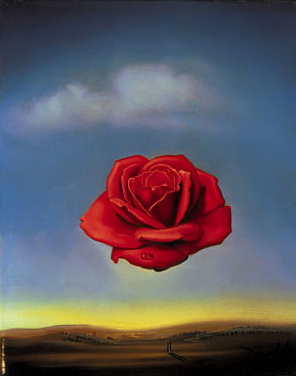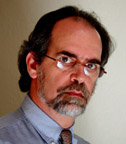
| Fiction | Essays | Poetry | The Ten | On Baseball | Chapbooks | In Memory |
|
writers on the creative life featuring Joe Flower
1. When did you start writing? I had my first short story published in a school journal when I was 13. I began writing in the 1960s when I was in college and made my living peddling my poetry booklets door to door. I began writing in the 1970s when I founded Poetry Flash and plunged into the world of San Francisco poets. I began writing in the 1980s when I found myself with no way to make a living except writing articles, so I wrote about sports and travel and healthcare and science and sex and art. I began writing when I joined the online group The Well in the late 1980s, and found that I had to make myself clear in a few words, over and over, day after day. 2. What is your writing routine like? I don’t have one. I write to deadline. When I have to write, I write quickly, with little re-writing. I am not, frankly, the one to ask about fiction or other creative work, though I have attempted a lot of it over the years. I have not shown, so far, that I am very good at it, except in extremely short form. I make a good living now as a writer, but in a way that is unknown to most writers and would-be writers. I make my living with my ideas, in a specific field. I am a healthcare futurist. Over time, I have established a reputation within the healthcare industry. The writing itself makes a very limited amount of money, but it establishes and nourishes the reputation, the “brand.” The speaking makes much more money. I hit my stride as a speaker about five years ago, after years of trying. When I did that, my income tripled. My average speech brings in two to three times as much as an article – and most articles only earn a fee once. You can give the same speech over and over again. Right now, I am going through another phase change. In this past year, my primary publishing vehicle abruptly went out of business. I decided I had to find other, more powerful and varied ways to reach my audience. I now have two online columns and one print column in industry journals. This has shown immediate results: I have already (in early December) met my financial nut for the coming year – seven months earlier than I ever have before. Beyond that, I am setting up a web and email list campaign to build a direct contact with a hard core of people in the healthcare industry who are fans of my material. I will be able to sell the material to them in a wide range of ways, at a wide range of prices, from nothing except an email address, for certain special reports, to thousands of dollars for special weekend retreats. This is a path that could work for any writer who has a special message or set of information that is of actual value to a definable audience: Use traditional venues only as one way to put yourself in front of potential customers. Find other ways to forge direct connections with those customers. You don’t need millions of customers to make a living. You need a few hundred to a few thousand rabid fans. Mark Twain attempted to do this. But he didn’t have the Internet. 3. Who are some of your favorite writers, and which writers have had the strongest influence on you? Right now? Tom Peters. Take a look at his most recent book, “Re-Imagine.” I have written several business books. Peters blows the covers off the whole idea of the business book. He has an engaging, argumentative, personal, in-your-face, challenging style that I find irresistible. Over time? Lao Tse, Twain, Faulkner. Tolkien. Jane Hirshfield, the poet. Rumi, in Coleman Barks’ translations. Martin Luther King. 4. Besides writing, what are you most passionate about in your life? Honesty. Integrity. My sweetheart Ana. My boys. Making a difference. 5. What kind of music do you enjoy and do you find that music has an influence on your writing? Blues, jazz, rock. My sweetie is a soprano and a classical pianist, and will spend sometimes hours playing Chopin and Mozart, and singing arias. It is balm to my soul and a happiness that could never be earned. But when I need some special juice in the writing, some tempo, some power not available in the moment, I will put on the blues, from Lady Day to Bonnie Raitt to Big Al. Or I will listen to the recordings I have of great speeches: FDR, JFK, MLK, Churchill. Writing is all about rhythm, timing, pace, and space. It’s about the breath and the pause. Do you understand what I am saying here? Can you imagine in your own writing how it has a pace, a syncopation, an attitudinal momentum and stride? Good. Because it’s there. It’s there if you listen for it. 6. Where are your favorite places to travel? Santa Fe, Paris, Sydney, Beijing, Amsterdam, San Francisco, the wine country, Chicago, New Orleans, Tahiti, London Least favorite place to travel: Inside. Here’s my advice. This is what I say: Never go into yourself unarmed. 7. Where do your best ideas come from, or, what creates your most inspired state? If you are awake, the world is awash with ideas. The problem is to notice them, to capture them, and to decide what to do with them. It’s about being curious and teachable. The moment richest in possibility is the least pleasant one. Any time you are having an unpleasant moment, ask yourself: What is waiting here to be learned? Then write it down. 8. Do you have any interesting vices that you'd care to share, and have they helped or hindered your writing? I’m trying to imagine what would be an interesting vice that would influence one’s writing. Writing is work. Writing is a martial art. 9. Yeats said that the only things worth writing about are sex and death -- what would your list include? If he said that, he was full of shit. If you are alive, everything is worth writing about. Think of Henry Miller. If writing doesn’t change your life, don’t bother. If it doesn’t make you different, nurture you, make you better, larger, deeper, happier, more wise and full, why even put words to paper? Seem like an odd declaration from someone who writes about the management of healthcare? My healthcare management writing changes my life, repeatedly. Readers have told me that it has changed their lives. It makes a difference. 10. What's next for your writing and for your publishing ventures? 1) Dunno. 2) See question #2 above.
3) “We shall not cease from exploration
|
| Home | Contributors | Past Issues | Search | Links | Guidelines | About Us |

|
|
|

|

 Joe Flower has been writing, speaking, and consulting about creating change for nearly two decades. He is the author or co-author of several books, including: Run Toward The Roar: Managing Healthcare in Turbulent Times (2003),
Joe Flower has been writing, speaking, and consulting about creating change for nearly two decades. He is the author or co-author of several books, including: Run Toward The Roar: Managing Healthcare in Turbulent Times (2003),